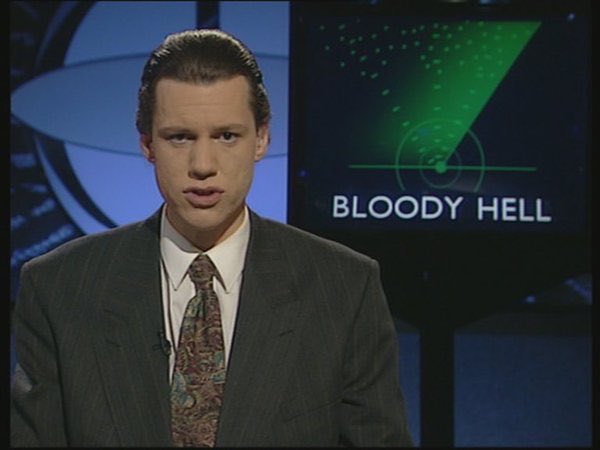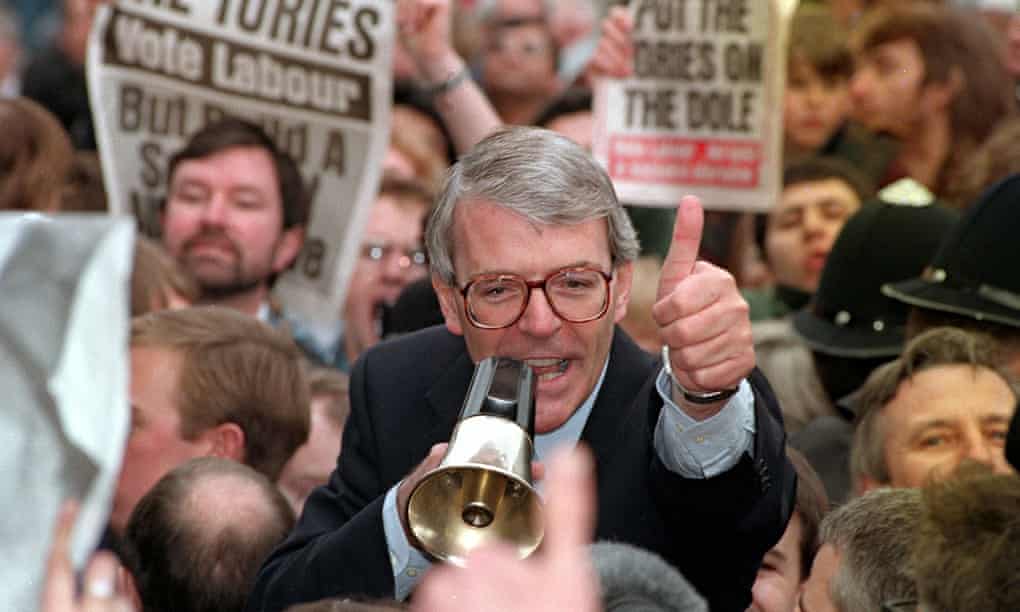So last month there was an election. You may have noticed.
Until now, I've been too busy for this. But note I've been grinning all the time I wrote this post, and for the last two weeks really.
Theresa May
Oh, dear, me. When Theresa May called the election, I was not alone in quaking in fear. She had used the single most disruptive event in living political memory to seize the top job in the land, and then had ruled her party with an iron fist ever since. Her mastery of the political landscape made an impression. Many people had positive opinions of her. I could pick these up at work; the political opinions of children are usually the refracted views of their parents. The moment I twigged there was no royal seal on the podium outside Downing Street, I presumed she was going in for the kill.
The Conservative party made one fatal flaw in 2016's leadership election. It didn't run the process to the finish. Had they done so, they would have spotted May's indecision, and wooden campaign nature. What comes across as strong and decisive in some circles comes across as ridiculous in others. By having a coronation, the Tories had to learn May's flaws under the full glare of the media spotlight.
And now we are familiar with them. Painfully so.
It must be hard for her. She is only human. But the transformation of her image in the last few months is total, and the clock is ticking for Theresa May.
Theresa May's Team (AKA The Conservatives)
I think the Conservative party must be rueing the day that they decided to bill themselves as 'Theresa May's Team.' All through the election, Theresa May left her party label behind her, as she was polling massively ahead of the Tories. The best encapsulation of this for me was when I got a letter from the Conservatives (heaven knows why I'm in their database as a swing voter). The gushing phrases and rhetoric from the Prime Minister were clear. The fact it was from the Conservatives was limited to the legal small print on the back. Plus the fact I'm vaguely politically aware. But the implication was clear. May was an asset, the party was a drag.
And then suddenly she wasn't an asset any more. By the time the Conservatives threw the reverse gear on the campaign, and desperately tried to shore up their position, by moving from a quasi-presidential contest to a more traditional party campaign, it was too late. 'Theresa May's Team' lost seats, their majority knocked out from underneath them.
But, underneath the loss of their majority, the Conservatives are still in a fairly strong position. They took 42% of the vote, the best share for any governing party since 1997, and the best Conservative vote since 1987. They are over fifty seats clear of Labour, enough to really govern alone as a minority government. In many parts of the country, there was a swing to them. They even picked up seats in Scotland. A small swing to the Tories will give them their majority back. The beast may be injured, but it is not finished.
Jeremy Corbyn
Ok, hands up. I was wrong.
My biggest objection to Jeremy Corbyn was that he was leading the party to destruction. The primary objective of the Labour party is to secure the election of Labour representatives, to enable the formation of a Labour government that will advance the interests of working people. I genuinely believed that history showed us that to put a hard-left leader in charge of the Labour party would not allow that to happen. In fact, all the precedents pointed to this being an absolute disaster. The one consolation would be the chance to get the whole thing over and done with.
And then it wasn't a disaster at all. For all many scoffed at a Corbyn surge, there was one. Turns out, a life long campaigner for left wing causes was quite good at campaigning for left wing causes. Who'd have thought?
When that exit poll dropped at 22:00 on polling day, it became obvious that Corbyn had earned his right to remain leader as long as he wanted. There's more below about the campaign, but Corbyn had run a great campaign, and it has paid off handsomely.
Labour
Much of the Labour stuff stands as above. Just one extra thing. I never thought I'd live to see the day that Labour, gain, and Canterbury, were all words that appeared in the same sentence. The last non-Conservative MP for Canterbury was a Gladstonian Liberal. If there was any better proof that labour is now far more competitive than at any point since 2005, this was it. Yes, they came second. But a close second is infinitely better than an electoral wipeout, and it left the party in a strong jumping off position for next time round.
Liberal Democrats
Who? Oh yes, the orangey ones, who were going to ride a wave of anti-Brexit sentiment back to power? Bless.
What this campaign has shown for the Lib Dems is that they need to think like the party they were in the 1950s and 1960s, at least for a while. Having grand national ambitions is all well and good, but the next few years are going to be about a fight to survive. This election has shown they can cling on, but not much else.
SNP
The SNP have gone from being the dominant political party in Scotland to a step away from wipeout. Yes, they are still the largest party in Scotland in terms of seats and votes. But both tallies are well down on 2015, and many of their seats were held on narrow majorities. Another election like that could see them back down to their pre-2015 levels, when they piled up votes across Scotland but were only strong enough to take 6 or so seats.
For all they would detest the comparison, the SNP may be suffering from a very New Labour problem. Promising radical reform may win you elections to start with, but when people realise it is all talk, and limited delivery, then they will desert you in droves.
DWhoP? (Sorry)
Whenever British elections are polled or predicted, there's always a bit that says '18 others.' Those 18 others are the Northern Irish MPs. Northern Ireland exists in a vastly different political world to the rest of the UK. It's politics is essentially still influenced by your opinion on a treaty from 1922. Should Northern Ireland be a part of the UK, or join with the Republic of Ireland?
The ending of large-scale violence through the Good Friday Agreement of 1998 is one of the resounding political success stories of the last two decades. It is now almost out of political memory what it was like to live with a conflict in the UK with seemingly no end in sight. But, the peace process has destroyed those parties who originally engineered it. The more moderate UUP and SDLP have been swept aside, replaced by political parties with links to the one-time men of violence- the Democratic Unionist Party (with dodgy loyalist associations) and Sinn Fein, whose leader Gerry Adams was NEVER A MEMBER OF THE IRA (unlike most of the rest of the Sinn Fein leadership).
Turns out, hardliners are pretty hardline. Constitutionally, Theresa May gets a shot at remaining PM because she is the incumbent, and in theory it is fine for her to use any combination of parliamentary arithmetic to pass a Queen's Speech and command the confidence of the House of Commons. There's no problem on paper with her using the DUP. Other than the fact they're fairly awful hardliners, with some pretty unpleasant views.
Actually, there is a problem on paper after all. The Good Friday Agreement commits Britain to remaining as a neutral arbiter in Northern Ireland. How the government can be neutral broker and dependent on one of the involved parties remains to be seen.
Oh, and I am going to instigate a ban on people talking about Northern Irish politics unless they can name at least two MLAs. If you've just had to check what MLA stands for, your entry is void from the start.
The Campaign Matters
A year ago, I felt as if the country I lived in suddenly became foreign. The politically motivated slaughter of an MP, the appalling bile of the EU referendum campaign, the decision to tear up half a century of partnership with our nearest neighbours, motivated by a hunger for an abstract concept, the apparent enfeeblement of the parliamentary left. All had me in a real gloom. So when Theresa May called her election, I thought this would be the final nail in the coffin. And, despite claims since, I was not alone. In fact, virtually everyone predicted she would win, and win well.
What changed? The campaign mattered, for the first time in a quarter of a century. The public saw May's frankly dreadful performances, the stilted soundbites, the refusal to debate and engage, the manifesto that could have been drawn up on the back of an envelope. Contrasted with that was a man for whom campaigning is his lifeblood. A clear, crisp manifesto from Labour, as well as an extraordinary online effort. It was a solid Labour performance, set against the worst political campaign run by any British political party since 1945. The result reflected that. In the weeks between calling the election and polling day, the British people got to see a lot more of Theresa May's brand of Conservatism, and found it wanting. A short campaign would have enabled her to get away with it. The long one was to prove fatal.
For the first time in a long time, I have political hope. I can see a route out of the long, dark tunnel we have been in these past few years. It will take time to get there, and the road ahead is still long and painful.
But it is there. We shall overcome.













